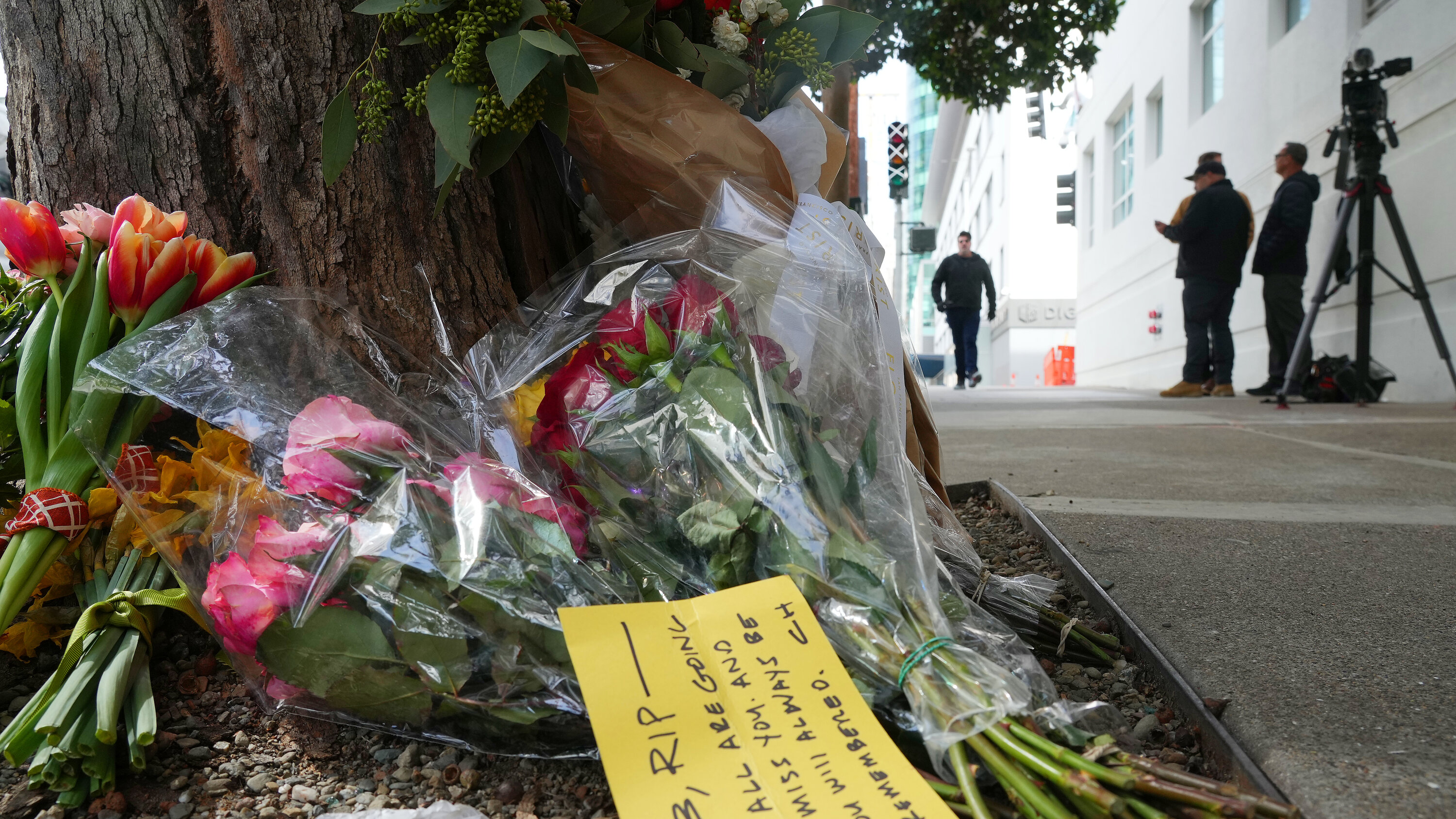The Ethics Of Betting On Natural Disasters: The Los Angeles Wildfires Example

Table of Contents
The Moral Implications of Profiteering from Disaster
Disaster betting, a niche but growing market, involves placing bets on the likelihood, severity, and impact of natural catastrophes. Profiteering in this context refers to the act of making financial gains from the misfortune of others. This practice is morally problematic due to its inherent insensitivity. It demonstrates a callous disregard for human suffering, transforming tragedy into a source of personal enrichment.
- Inflating Perceived Risk: The existence of betting markets could inadvertently inflate the perceived risk of a disaster, potentially leading to unnecessary panic or even influencing insurance premiums.
- Psychological Impact on Victims: For victims already grappling with loss and trauma, witnessing others profiting from their misfortune can be deeply distressing and exacerbate their suffering. This adds insult to injury, hindering the healing process.
- Trivializing Disaster Severity: The act of betting on a natural disaster, in essence, reduces a complex and devastating event to a mere financial transaction, trivializing its severity and the profound human cost involved. This undermines the importance of empathy and collective responsibility in the face of such events.
The Issue of Prediction and its Ethical Ramifications
Predicting natural disasters is an inherently complex and uncertain endeavor. While advancements in meteorological modeling and data analysis have improved predictive capabilities, accuracy remains imperfect. This inherent uncertainty introduces a significant ethical dimension to disaster betting.
- Misinformation and Manipulation: The potential for misinformation and manipulation of prediction models to influence betting outcomes is a serious concern. This could lead to unfair advantage for some and exacerbate the negative consequences for others.
- Ethical Responsibility of Predictors: Those involved in developing and disseminating disaster predictions—scientists, meteorologists, and data analysts—bear a significant ethical responsibility to ensure accuracy and avoid contributing to the exploitation of vulnerable populations.
- Responsibility to Mitigate: A critical question arises regarding whether those who profit from accurate predictions bear any moral or social responsibility to contribute to disaster mitigation or relief efforts.
The Los Angeles Wildfires as a Case Study
The devastating Los Angeles wildfires provide a stark illustration of the ethical complexities inherent in disaster betting. These fires, characterized by their intensity, scale, and devastating impact on communities, represent a clear case study.
- Scale of Destruction and Suffering: The sheer scale of destruction and loss of life, homes, and livelihoods caused by the wildfires underscores the gravity of the situation and the inappropriateness of profiting from such suffering.
- Vulnerability of Affected Communities: Many communities affected by the wildfires are already vulnerable, facing socioeconomic challenges that exacerbate their susceptibility to disaster. Profiteering in this context represents an added burden on already struggling populations.
- Potential Betting Markets: Potential betting markets related to the wildfires could include predictions on the extent of property damage, the number of evacuations, or even the precise locations most severely affected. Each of these presents a distinct ethical challenge.
Alternative Perspectives and Counterarguments
It's important to acknowledge arguments in favor of disaster betting, although they often fall short of addressing the core ethical concerns. Some argue that financial incentives for accurate disaster prediction could encourage the development of better forecasting models, ultimately contributing to improved preparedness and response.
- Benefits of Predictive Modeling: Advanced predictive modeling can undoubtedly aid in disaster preparedness and response, leading to better allocation of resources and potentially saving lives. However, this benefit should not justify the unethical practice of profiting directly from the suffering caused by the disaster.
- Economic Neutrality of Betting: Arguments for the economic neutrality of betting in general often overlook the specific context of disaster betting, which directly links financial gain to human suffering.
- Responsible Gambling Practices: Promoting responsible gambling practices can mitigate some harms associated with betting, but they don't address the fundamental ethical issue of profiting from disaster.
Ethical Considerations in Betting on Natural Disasters: A Call to Action
Betting on natural disasters, exemplified by the devastating Los Angeles wildfires, raises profound ethical concerns. Profiteering from the suffering of others is morally reprehensible and undermines the collective responsibility to support affected communities. We must critically examine the ethical dimensions of disaster betting and promote responsible behavior. This includes fostering awareness and critical thinking about the implications of participating in or supporting such markets, and encouraging open discussion and further research into the ethics of betting on natural disasters. Let's prioritize empathy and responsible action over the pursuit of profit in the face of tragedy. Consider the ethical implications before participating in disaster betting markets. Promote responsible gambling and support those affected by natural disasters.

Featured Posts
-
 Aex Rally Na Trump Uitstel Analyse Van De Stijging
May 25, 2025
Aex Rally Na Trump Uitstel Analyse Van De Stijging
May 25, 2025 -
 Rio Tintos Defence Of Its Pilbara Mining Practices
May 25, 2025
Rio Tintos Defence Of Its Pilbara Mining Practices
May 25, 2025 -
 Soerloth Tan La Liga Ya Doertlue Gol Darbesi
May 25, 2025
Soerloth Tan La Liga Ya Doertlue Gol Darbesi
May 25, 2025 -
 Darwin Shop Owner Stabbed To Death Teenager In Custody
May 25, 2025
Darwin Shop Owner Stabbed To Death Teenager In Custody
May 25, 2025 -
 Najbogatiji Penzioneri Na Svetu Gde Se Nalaze
May 25, 2025
Najbogatiji Penzioneri Na Svetu Gde Se Nalaze
May 25, 2025
Latest Posts
-
 Naomi Kempbell U Biliy Tunitsi Z Yavilasya Na Londonskomu Zakhodi
May 25, 2025
Naomi Kempbell U Biliy Tunitsi Z Yavilasya Na Londonskomu Zakhodi
May 25, 2025 -
 Novaya Fotosessiya Naomi Kempbell Smelye I Otkrovennye Snimki
May 25, 2025
Novaya Fotosessiya Naomi Kempbell Smelye I Otkrovennye Snimki
May 25, 2025 -
 Zaboravite Na Brige Penzionerski Zivot Pun Luksuza I Bogatstva
May 25, 2025
Zaboravite Na Brige Penzionerski Zivot Pun Luksuza I Bogatstva
May 25, 2025 -
 Naomi Kempbell 55 Foto Z Pokaziv Ta Sekreti Yiyi Bezdogannogo Stilyu
May 25, 2025
Naomi Kempbell 55 Foto Z Pokaziv Ta Sekreti Yiyi Bezdogannogo Stilyu
May 25, 2025 -
 Naomi Kempbell Otkrovennye Obrazy Dlya Glyantsa
May 25, 2025
Naomi Kempbell Otkrovennye Obrazy Dlya Glyantsa
May 25, 2025
